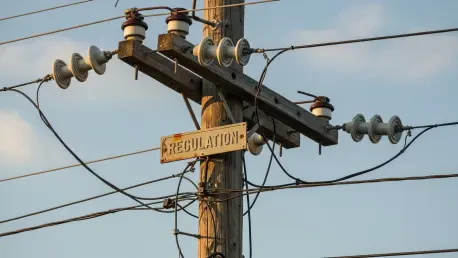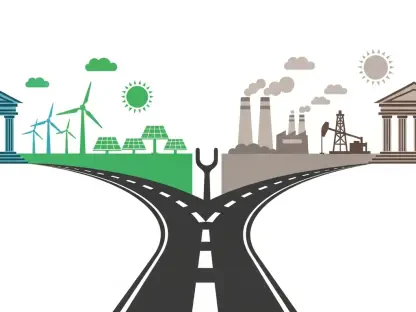As Korea stands at the forefront of technological innovation, major conglomerates are pouring unprecedented investments into AI, semiconductors, and other cutting-edge sectors. Yet, the nation faces significant hurdles in the form of outdated regulations and bureaucratic delays. Today, we’re speaking with Desiree Sainthrope, a legal expert with deep expertise in trade agreements and global compliance, who also brings a nuanced perspective on the intersection of law and emerging technologies like AI. In this interview, we explore the ambitious investment strategies of Korea’s corporate giants, the regulatory barriers stifling progress, and the critical reforms needed to maintain the country’s competitive edge in the global market.
How do you view the massive 803 trillion won investment commitment by Korea’s top conglomerates, and what does it signal about their vision for the future?
This investment by Samsung, SK, Hyundai Motor, and LG is a bold statement of intent. It’s not just about scale—803 trillion won over five years is staggering, close to half of Korea’s GDP—but about positioning Korea as a leader in transformative industries. It signals a shift toward future-focused sectors like AI, semiconductors, and electric vehicles, where global dominance is still up for grabs. What’s striking is the confidence these companies have in their ability to innovate, despite the well-known regulatory challenges. It’s a gamble that they can push through or work around the red tape to maintain their edge over international rivals.
What specific industries are these conglomerates targeting, and why do you think they’ve chosen these areas?
The focus is heavily on AI, semiconductors, electric vehicles, space, and even nuclear energy. These aren’t random choices; they’re strategic bets on industries where Korea already has a competitive advantage or sees exponential growth potential. Semiconductors, for instance, are the backbone of everything digital, and with AI driving demand for advanced chips, companies like Samsung and SK Hynix are doubling down. Electric vehicles align with global sustainability trends, while nuclear energy addresses the massive power needs of tech infrastructure. It’s about securing supply chains and technological sovereignty in a world where these sectors define economic power.
Can you explain what’s meant by “electric pole regulations” and why they’re such a persistent issue for businesses in Korea?
“Electric pole regulations” is a term used in Korea to describe outdated, overly rigid rules that act like immovable obstacles—much like old utility poles that block modern development. These are bureaucratic barriers in areas like permitting, finance, and labor that haven’t kept pace with technological or industrial needs. For businesses, they’re frustrating because they create unnecessary delays and costs. Imagine trying to build a cutting-edge semiconductor plant but getting stuck for years on environmental approvals that take three times longer than in other developed nations. It’s a systemic issue that stifles agility and innovation.
How do these regulatory delays impact Korea’s ability to compete globally, especially in fast-moving fields like AI and semiconductors?
The impact is profound. In industries like AI and semiconductors, speed is everything—markets shift in months, not years. When projects like SK Hynix’s semiconductor cluster in Yongin get delayed by nearly four years due to bureaucratic gridlock, competitors in places like Taiwan or the U.S. can leap ahead. These delays don’t just cost time; they cost market share, talent, and investor confidence. Korea risks being seen as a less attractive hub for innovation if approvals for critical infrastructure like data centers or fabs can’t keep up with global standards.
What’s behind the slow pace of environmental and infrastructure approvals in Korea compared to other OECD countries?
A big factor is the layered complexity of Korea’s regulatory framework. Environmental reviews, for instance, often involve multiple agencies with overlapping mandates, leading to redundant checks and prolonged timelines. There’s also a cultural emphasis on caution and consensus, which, while valuable for safety, can paralyze decision-making. Compare this to other OECD nations where streamlined processes or one-stop approval systems are more common—Korea’s approach hasn’t evolved at the same pace. Add to that local government involvement, which can introduce further delays due to political or community concerns, and you’ve got a recipe for gridlock.
Can you walk us through a specific case, like the SK Hynix semiconductor cluster in Yongin, to illustrate how these delays play out?
Absolutely. The SK Hynix project in Yongin was announced in 2019 with high hopes of bolstering Korea’s semiconductor leadership. But it took nearly four years to even break ground. The delays stemmed from protracted environmental assessments and local government reviews, which dragged on far longer than expected. Every step required multiple approvals, and each hiccup—whether a community objection or a technical reassessment—pushed the timeline further. This isn’t just a delay in construction; it’s a delay in production, talent hiring, and market response at a time when global chip demand is skyrocketing. It’s a textbook case of how bureaucracy can undermine even the most critical projects.
One reform area often mentioned is easing financial-industrial separation. Can you explain what this entails and why it matters for innovation?
Financial-industrial separation in Korea refers to strict rules that limit how much industrial conglomerates can invest in or control financial entities, like banks or venture capital. The intent was to prevent monopolistic power, but in practice, it hampers collaboration between large firms and startups. Easing these rules would allow more robust corporate venture capital activity, meaning companies like Samsung could directly fund promising AI or robotics startups. This matters for innovation because it bridges the gap between capital-rich giants and agile, idea-driven smaller players, creating a more dynamic ecosystem where new technologies can scale faster.
How do you see labor laws, particularly the Yellow Envelope Law, affecting large-scale industrial projects in Korea?
The Yellow Envelope Law, designed to protect workers’ rights, has introduced significant uncertainty for businesses, especially in manufacturing sectors that rely on complex subcontractor networks. The law makes primary contractors liable for issues down the supply chain, leading to a wave of lawsuits that target parent companies. For large projects, this creates a chilling effect—firms hesitate to invest or expand when they fear endless legal battles over subcontractor disputes. It’s not just about cost; it’s about the unpredictability that deters long-term planning and innovation investment in industries like semiconductors or energy.
Energy supply is another pressing issue for tech-heavy industries. Why is nuclear power being highlighted as a solution in this context?
AI and semiconductor manufacturing are incredibly energy-intensive. Data centers and fabs need stable, affordable power to operate 24/7, and Korea’s current grid struggles with rising costs and slow expansion. Nuclear power is being pushed because it offers a reliable, high-capacity base-load energy source that can meet these demands without the carbon footprint of fossil fuels. It’s seen as a way to ensure industrial competitiveness, especially when global rivals are also racing to secure sustainable energy for tech growth. Without this, Korea risks power shortages or costs that could drive companies to invest elsewhere.
What’s your forecast for Korea’s industrial future if regulatory reforms don’t keep pace with these ambitious investment plans?
If reforms lag, I foresee a troubling divergence. On one hand, Korea’s conglomerates have the capital and talent to lead in AI, semiconductors, and beyond. But without deregulation, many of these investments could underperform or shift overseas to more flexible markets like the U.S. or Singapore. Startups might relocate, and global partners could hesitate to collaborate. Korea risks becoming a manufacturing powerhouse stuck in the past, overtaken by nations that better align policy with innovation. The stakes are high—reform isn’t just a nice-to-have; it’s the linchpin of whether Korea shapes the next industrial era or watches from the sidelines.









